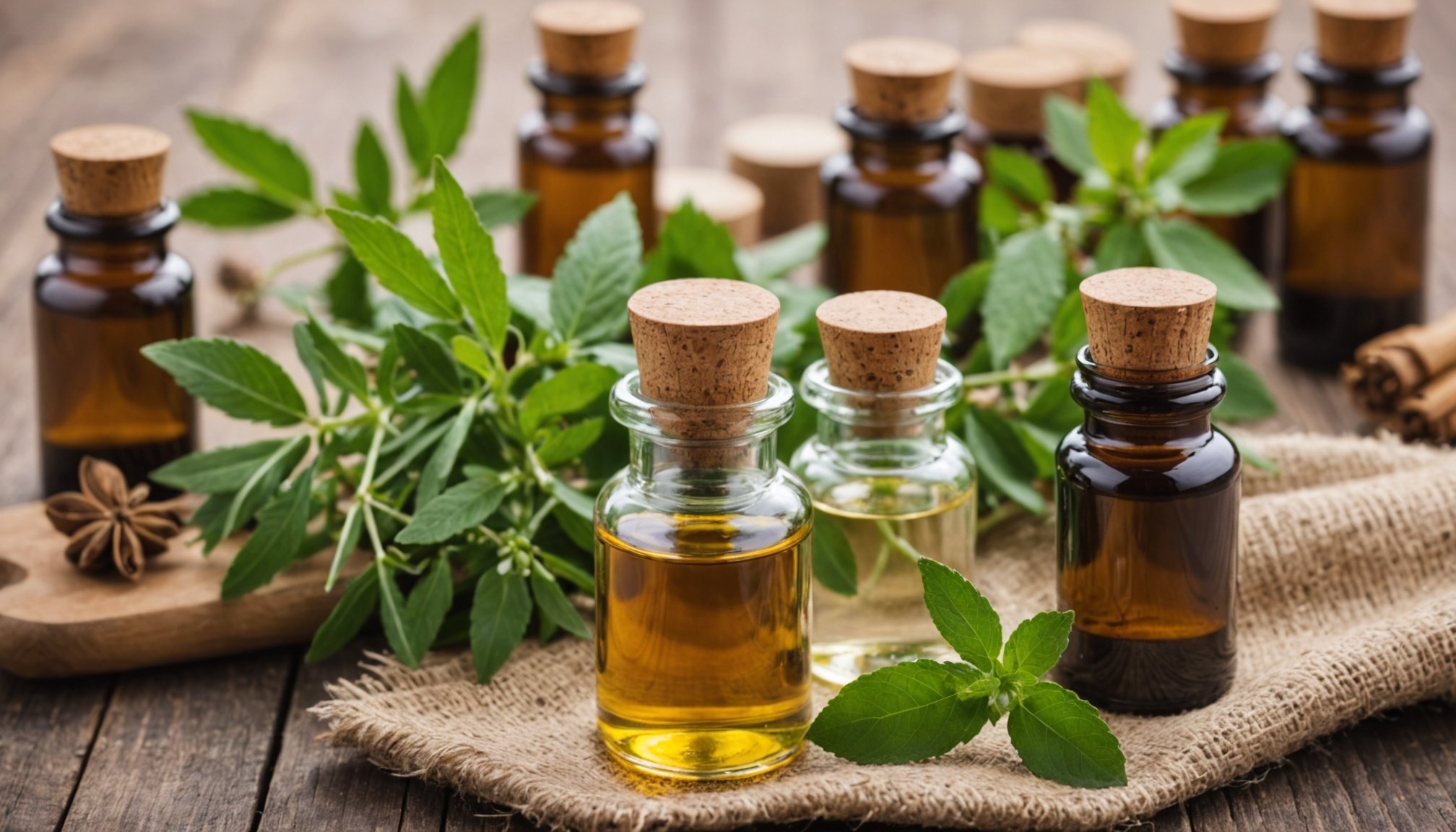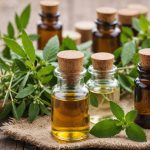Overview of Aromatherapy
Aromatherapy is a therapeutic practice that utilises essential oils to promote health and well-being. These natural plant extracts are believed to enhance physical and emotional health through their aromatic compounds. Historically, aromatherapy has evolved from ancient practices where essential oils were used for medicinal purposes to being a significant part of modern complementary therapies. It involves the holistic application of essential oils to support body, mind, and spirit.
Essential oils derive from various plant parts, including leaves, flowers, stems, and roots. Each has unique properties and characteristics that lend to distinct therapeutic uses. For example, lavender oil is renowned for its calming effects, whereas eucalyptus is celebrated for clearing respiratory passages.
Also to read : Maximizing Mental Health: The Impact of Pharmacogenomic Testing on Tailoring Depression Treatments
Incorporating aromatherapy requires understanding these bases, ensuring the correct application for desired outcomes. Practitioners often recommend a tailored approach, selecting appropriate oils based on individual needs and preferences.
The principles of aromatherapy can be distilled down to the interaction between aroma and physiology, often focusing on the connection between the olfactory system and emotional states. As a form of integrative therapy, it has found its place in various health settings, aiming to complement traditional medical treatments and enhance quality of life.
Also to read : Boosting Medication Adherence: The Impact of Mobile Health Solutions Explored
Aromatherapy and Its Mechanism of Action
Aromatherapy relies on the interaction of aromatic compounds with the olfactory system to induce emotional and physical responses. When essential oils are inhaled, their molecules stimulate the olfactory receptors located in the nasal cavity. This process triggers nerve impulses that travel through the olfactory bulb and directly impact the brain’s limbic system, an area closely linked to emotional responses.
The connection between scent and emotional response can be profound. For example, certain fragrances can evoke memories or alter moods, which is instrumental in aromatherapy’s appeal. The limbic system not only processes emotions but also plays a role in regulating physiological responses, such as heart rate and stress levels. This is why oils like lavender are often used to reduce anxiety and promote relaxation.
In terms of neurobiological pathways, aromatic compounds can stimulate the release of neurotransmitters such as serotonin and dopamine, which are known to have mood-enhancing effects. This mechanism can aid in anxiety reduction, offering a non-invasive approach to mental well-being. While more research is needed to fully understand these complex interactions, the foundational principle remains: aromatherapy leverages the olfactory system to impact emotional and physiological states effectively.
Clinical Evidence Supporting Aromatherapy in Cancer Care
The application of aromatherapy in cancer care has gained attention due to its potential benefits for anxiety management. Numerous research studies have explored the efficacy of aromatherapy in alleviating anxiety among cancer patients. A notable study indicated that participants who were exposed to essential oils like lavender experienced significant improvements in mood and stress reduction compared to those who received a placebo. These findings highlight the potential of aromatherapy as a complementary therapeutic practice, offering non-pharmacological support for emotional well-being during cancer treatment.
However, it’s important to consider the limitations and gaps in existing research. Many studies feature small sample sizes and lack long-term follow-up, which affects the generalisability of results. The subjective nature of measuring emotional outcomes, along with variability in the methodologies employed, can further complicate interpretation. This underscores the need for more rigorous clinical trials to better understand the precise mechanism and impact of aromatherapy.
Despite these challenges, the current evidence from clinical trials presents a promising perspective on aromatherapy’s role in integrative cancer care. As research advances, healthcare providers may find more concrete reason to incorporate this practice into patient-centered care plans, enhancing the overall quality of life for those undergoing treatment.
Essential Oils Specifically for Anxiety Relief
Aromatherapy is increasingly recognized for its potential in anxiety relief, with certain essential oils gaining prominence for their therapeutic properties. Among these, lavender oil is extensively used for its calming influence on the nervous system. Known to lower cortisol levels, it is frequently employed in stress and anxiety management, making it a staple in both professional and home settings.
Lavender Oil
Lavender oil is celebrated for its capability to promote relaxation. It interacts with neurotransmitters in the brain, aiding in the reduction of anxiety and enhancing mood regulation. Its application ranges from topical use in massages to diffusion for inhalation.
Bergamot Oil
Bergamot oil also stands out for its uplifting and anxiety-reducing effects. Derived from citrus plants, this oil possesses unique compounds that can positively influence emotions. It has shown promise in studies focusing on mood improvement, offering an accessible option for emotional support.
Frankincense Oil
Frankincense oil offers a rich history tied to spiritual and calming rituals. Its psychoactive properties work to induce feelings of peace and wellness. Used in various ways, such as in diffusers or blended into creams, frankincense supports mental clarity and stress reduction, adding depth to anxiety relief practices.
Patient Experiences and Testimonials
Qualitative research plays a vital role in understanding how cancer patients perceive and benefit from aromatherapy. Collecting personal experiences and patient testimonials provides insights beyond quantitative data, enriching our knowledge of the emotional and psychological impacts. Many patients report significant relief from anxiety and stress after incorporating aromatherapy into their routines. The narrative accounts offer a firsthand look at the role of essential oils in enhancing holistic care approaches.
For instance, patients often describe how particular scents, like lavender, evoke a sense of calm and well-being during stressful treatment phases. The non-invasive nature of aromatherapy suits those seeking complementary therapies without additional medication burdens. Moreover, testimonials reveal profound emotional shifts, as patients recount experiences where diffused essential oils alleviate tension and aid relaxation.
These personal stories underscore how aromatherapy can support mental health, providing comfort amid a challenging cancer journey. They highlight the importance of personalization, with many noting the significance of selecting oils that resonate with their preferences and needs. Through the lens of qualitative data, we see how aromatherapy can contribute positively to patient-centered care, reinforcing its place in modern cancer care strategies.
Safety Concerns and Limitations of Aromatherapy
Aromatherapy, while beneficial, requires awareness of potential safety concerns and limitations. Essential oils are potent, and misuse can lead to adverse effects like skin irritations or allergic reactions. Sensitivity varies among individuals, necessitating cautious application and dosage considerations.
Some essential oils may be contraindicated for pregnant women, children, or those with specific medical conditions. It’s crucial to consult with healthcare providers before use, ensuring that aromatherapy complements rather than conflicts with existing treatments. Reliable guidelines advocate conducting patch tests for new oils to pre-empt allergic responses. Using proper dilution of oils, particularly in topical applications, minimizes the risk of irritations.
In clinical settings, practitioners must adhere to established protocols to maintain patient safety. This includes assessing contraindications, monitoring patient responses, and providing education on responsible use. Awareness of potential interactions with medications further enhances safety.
While research supports aromatherapy’s efficacy in several domains, the lack of standardized practices highlights the need for comprehensive education of both patients and providers. By prioritizing safe practices and respecting contraindications, aromatherapy can remain a valuable and effective complementary therapy.
Recommendations for Incorporating Aromatherapy in Healthcare
Integrating aromatherapy into healthcare requires a strategic approach to ensure its efficacy and safety for patients. Developing best practices is essential to maximize benefits and minimize risks associated with essential oils.
To effectively incorporate aromatherapy, healthcare providers should undergo specialized training and education on essential oil properties and therapeutic practices. This enables them to make informed decisions and design personalized care plans. Engaging in integration in care plans means selecting appropriate oils for specific patients based on their medical history and emotional needs. Providers should also assess individual sensitivity to essential oils and consider potential contraindications.
Collaboration between aromatherapy specialists and healthcare teams fosters a holistic approach, marrying modern medicine with complementary therapies. Incorporating feedback from patients about their experiences can further refine approaches and validate therapeutic practices.
Healthcare providers can also explore partnerships with aromatherapists to offer personalized approaches and holistic care. Encouraging patients to share their responses allows for tailored modifications and enhances the treatment’s success. Through these methods, aromatherapy can become a valuable part of patient care, supporting well-being alongside conventional medical treatments.











